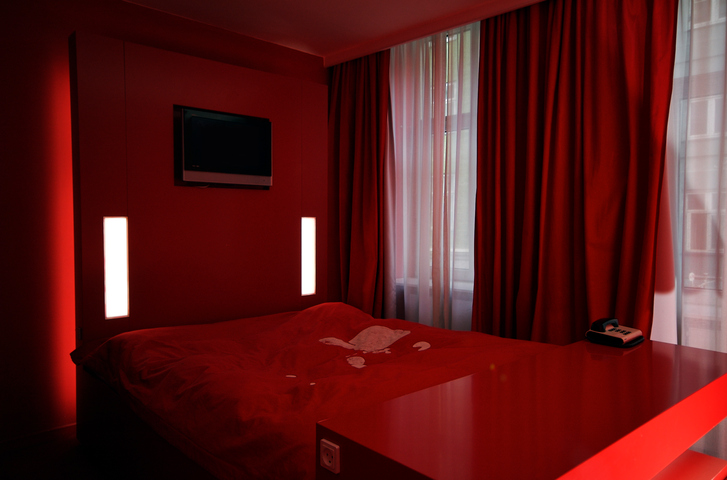Police Accused of Targeting Brothel and Not The Robbers Who Attacked It
August 5, 2017

In a rather troubling case, a police force have been accused of threatening brothel workers with prosecution, rather than targeting the armed robbers who have made a series of raids in the area.
The row over how these crimes are prioritised, plus how the government’s victim policy is acted upon shows a real confusion as to how the country deals with sex work.
High Profile Help
The shadow Brexit secretary Keir Starmer has written to the Metropolitan police in support of one of the victims, who is also a constituent of his. Before he became a Labour MP, he was the director of public prosecutions, so will have knowledge of the law and how it is supposed to be applied.
Starmer said letters sent by the Met threatening women with prosecution under the 1956 Sexual Offences Act “could make it more difficult to stay in touch with victims of violent crimes and therefore hinder a future prosecution”.
One letter sent by the police to the address in Enfield stated that “any female at this address now, who is found at this same address in the future, is very likely to be arrested”.
The Enfield attack happened at 12.30am on 24 June. A Brazilian worker who was robbed by a guy with a gang with knives stated: “The security guard opened the door to a customer, told him to take his hoodie off and then there were about five or six guys. Some of them had big knives.
“One of the guys came into my room and was asking where the money was. We told them but they started searching for other places where girls hide their cash.
“One of the girls was kept in another room. She said the men tried to touch her bra to see if she had any money there. Some of them were wearing gloves. They were all in their 20s. They also took a laptop and a phone.
“After they had gone I called 999. The police arrived in five or 10 minutes. The officers asked how many customers we had each day. They didn’t give me a crime reference number. They later called back a woman who didn’t speak English.”
Anne-Marie, which isn’t her real name, added: “A women in another house that was robbed sent me pictures of the men. They were wearing masks. They looked familiar.” She believes she recognised them.
“In most cases the girls don’t call the police. One [robber] told them: ‘Don’t worry you will earn back more money’. She claims he returned a week later to rob the the place again.
After being threatened with prosecution, she no longer felt comfortable in the building.
“I felt I had to leave that place,” Anne-Marie said. “The police were not looking into the robbery, they were just kicking us out.”
Criticism
Needless to say, Niki Adams, a spokeswoman for the English Collective of Prostitutes is less than impressed.
“Women’s safety is being [compromised]. It goes against the home affairs committee’s call last year for women sharing premises to be decriminalised. The police are permitting a terror campaign against sex workers. Even having a key [to enter the premises] is deemed to be assisting in running a brothel.”
Responding to the allegations, a Met spokesperson said: “Police are investigating reports of a robbery at premises in Enfield on 24 June at around 00:30hrs. There were no reported injuries. There have been no arrests at this stage, but enquiries continue. Officers subsequently made contact with the victim/s to inform them on the progress of the investigation.
“As a law enforcement agency, the safety of people engaged in sex work is paramount to the police and tackling violence against women and girls is also a priority for the Met police.
The Met said it had sent out a letter to the premises detailing the laws on prostitution, but added: “We are continuing to develop a consistent approach across London to dealing with the impact of sex work on the vulnerable, and working in partnership with support agencies to offer individuals pathways into support services and out of prostitution. This of course does not rule out use of legislation where other options have been exhausted, or it is the appropriate action to take in the circumstances.”
Currently selling sex is not illegal in the UK, but most stuff around it is. Women working together in a single premises are likely to be charged with managing, or assisting in the management of, a brothel, which is illegal under section 33A of the Sexual Offences Act.
The Need To Prioritise
It is plainly obvious that if police start being more concerned about what is going on in the property rather than the reported crime, then sex workers will find it more difficult to call for assistance. The natural reaction to that will be robbers thinking brothels are an easy target so doing it more.
Police need to get their priorities sorted. I am not saying it is agenda driven, and this is just one force. We all know the law here can be confusing, and when you have grey areas it leads to mistakes happening.
Simply put though, robbing is worse than sex work, so don’t encourage robbing by attacking sex workers who have called for help.
That has made it pretty simple, hasn’t it?
- Exploring Non-Monogamy: Open Relationships and Swinging - October 23, 2024
- Top 5 Common Mistakes Men Make in Bed and How to Fix Them - July 16, 2024
- Sensual Self-Expression: How to Embrace Your True Sexual Identity During Pride - June 28, 2024

